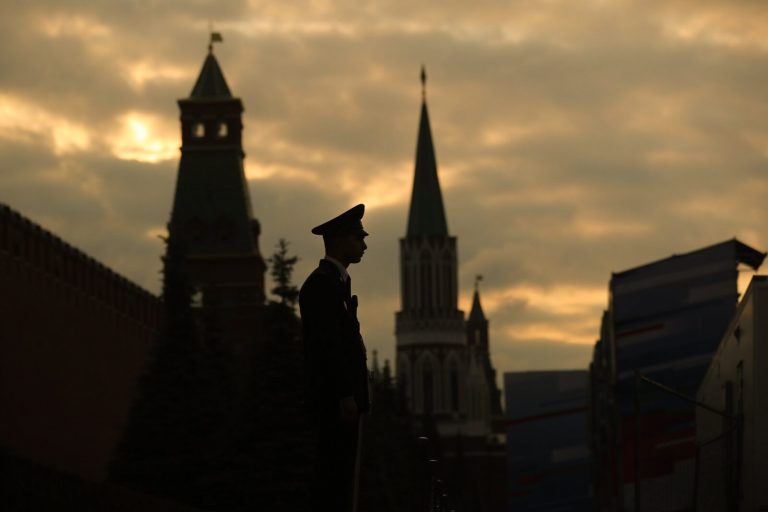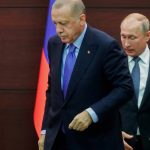Russia sees itself as a long suffering victim of international aggression, therefore it must be ever vigilant for the next attack on its sovereignty. To the Russian people, it is a simply a matter of when the next invasion will come, not if. Russia has always been hypersensitive to the notion of a foreign army massing on its borders, preparing to invade the motherland and steal the bountiful natural resources and almost limitless land that make up the eleven times zones of Russia. This feeling that the world is constantly conspiring to attack Mother Russia, an “us against the world” mentality is embedded deep into the Russia psyche and forms much of the basis for the “mysterious Russian soul.” It is also the basis for most foreign and domestic government policy and has been for some time.

However, if there is one thing the Russian people fear even more than a foreign invasion, it is having a weak, ineffectual government to protect them from the outside world. When this happens, Russia goes up in flames, as it has on several occasions in the past several hundred years. Recently, a reinvigorated Russia has begun to morph from victim to aggressor by pushing back at what they consider an encirclement by NATO, thereby giving itself a buffer, a kind of lebensraum against the west. Beginning in 2014, Russia, under the firm leadership of Vladimir Putin, has carried out a series of aggressive foreign policy initiatives that have not been seen since the height of the Cold War. Even before the annexation of Crimea in that year, the Russian military had begun a massive modernization and professionalism process that would jump start their decaying armed forces into the 21st century and vie for a place at the international table with the U.S. and China.
It is no secret that the fall of the Soviet Union in December of 1991 enraged a little known KGB officer, LTC Vladimir Vladimirovich Putin. Fluent in German, Putin had served in East Berlin and Dresden as an intelligence operative in communist East Germany for many years. He believed this seismic event to be both a personal embarrassment and a national tragedy, perhaps even on a par with the Nazi invasion of Russia in 1941. For Putin, the dissolution of the Soviet Union essentially meant an end to his carrier in the intelligence services and a permanent stain on the reputation of his country, something he found almost impossible to reconcile.
Being a KGB officer meant having the prestige and authority of the Soviet state behind him. Being just citizen Putin meant having no real authority and forced him to compete on the same level with everyone else in the chaotic and often vicious reality of the post-Soviet Russian world. Subconsciously perhaps, he waited for a time when he could somehow get revenge for this personal and national disgrace and even possibly restore Russia to its former seat at the table of the other leading international powers like the USA and China. While serving as Deputy Mayor of Saint Petersburg in 1999, he got his chance. President Boris Yeltsin appointed him Prime Minister in 1999 and in 2000, Putin succeeded Yeltsin as President of Russia. He is till there. Russia had found the strong leader they so long for.
The invasion and later annexation of Crimea in May of 2014, and the subsequent invasion of the Donbass region of eastern Ukraine later that year by Russian “little green men” marked a major escalation of Putin’s “breakout” strategy based on the Russian theory of encirclement by NATO. Of course, Putin masked both illegal incursions as Russia simply responding to pleas for help from the “greatly oppressed” Russian speaking populations of those Ukrainian regions. Putin then pledged to come to the aid of any and all Russian speaking people anywhere in the world, even if that involved military action. I would like to see his response if the thousands of Russian speaking residents of Brighton Beach in Brooklyn, NY suddenly pleaded for rescue from their tortured lives near Sheepshead Bay and decided they would like to carve out their own little Kaliningrad on the Brooklyn shore. Would little green men speaking fluent Russian with Moscow accents suddenly parachute into Prospect Park, march through Flatbush and Grand Army Plaza, and then later raise the Russian flag at Brooklyn Borough Hall? Would the local Russian speaking population, backed up by the “all civilian volunteer former army soldiers with absolutely no connection to Putin”,suddenly declare themselves residents of the newly formed Borsch Republic of Brooklyn? Would they be recognized by the Russian Duma?
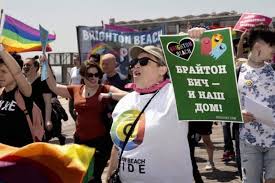
A nonsensical scenario? Perhaps, but no more nonsensical than the current policy of the Russian government that states they can unilaterally invade any country they choose because the local Russian speaking population allegedly requested the help of Russia to escape an oppressive environment where their right to speak Russian and practice their Russian culture was being denied. That false scenario is essentially what the Russian invasion and occupations of Crimea, Donbass, East Ossetia, and Transnistria are based on. In reality, these military incursions are nothing more than blatant invasions of a sovereign nation by the armed forces of Russia under the express orders of Vladimir Putin. In another time not long ago, this would be considered an act of war by the international community, but sadly, not so now. And all indications are that the cyber and disinformation attacks, as well as the attacks and kidnapping of border troops in the Baltics may well signal future invasions along Russia’s eastern border with their former Soviet satellites.
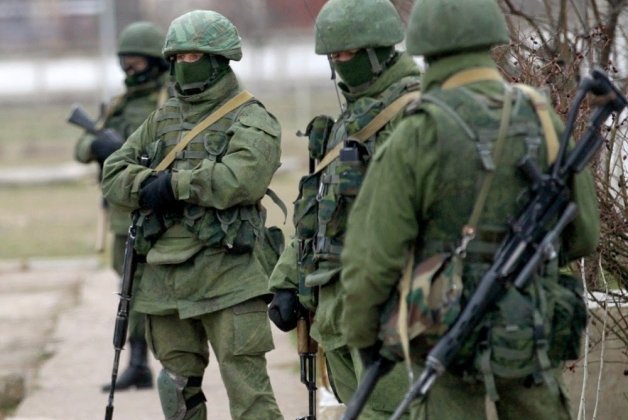
President Putin, your borders, the sovereignty of the Russian state have not been threatened in over 75 years. No one is interested in attacking, invading and occupying your country. No one. We all understand and appreciate your apprehension, even paranoia over such a possibility because of your nation’s past history. We get it. We really do. But that was then and this is now. No one is threatening you, including NATO. On the other hand, Russia is now behaving as the aggressor in several countries and regions around the world. Please stop and reconsider these actions. They do not make your nation safer. In fact, your aggressive military actions and violation of international laws are and will continue to make your country less safe.
Please think about it. We all want to have a good, productive and peaceful relationship with you and your country.
Author
-
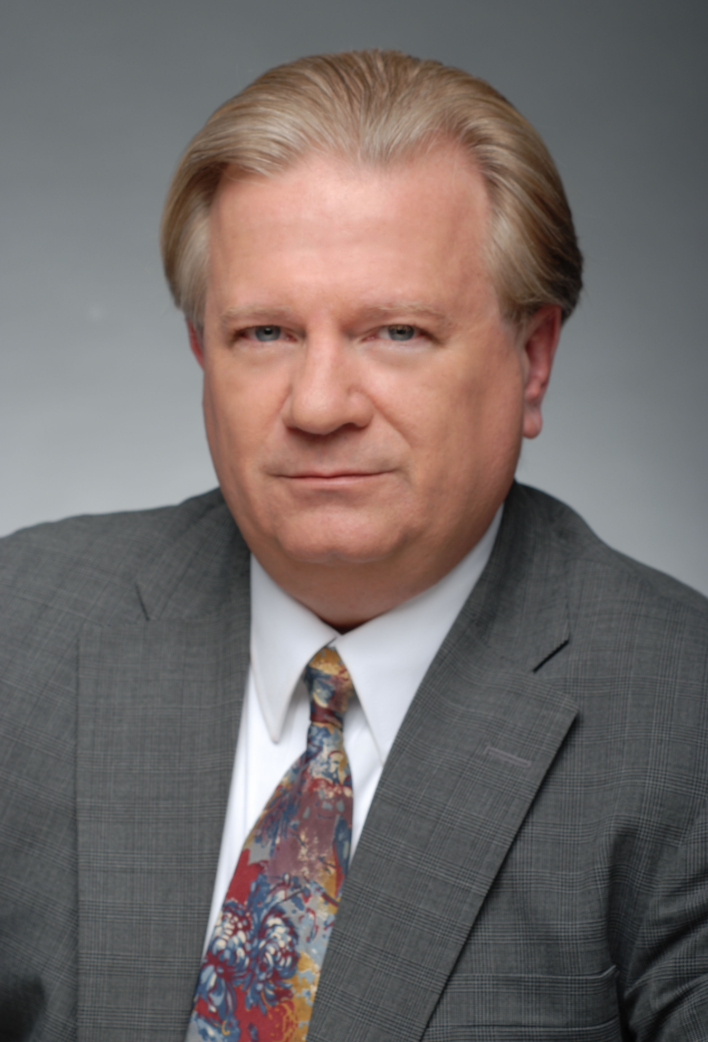
Retired U.S. Army Counterintelligence Special Agent. He served in Iraq as a team leader of a tactical Human Intelligence Team (THT). Prior to his deployment to Iraq, David was an instructor at the reserve U.S. Army Counterintelligence Special Agent course. He has published four novels for Grand Central Publishing and is currently finishing a memoir of his experience in Iraq. David has also written articles for Vanity Fair, Salon.com, The American Prospect and The Washington Monthly.
View all posts


